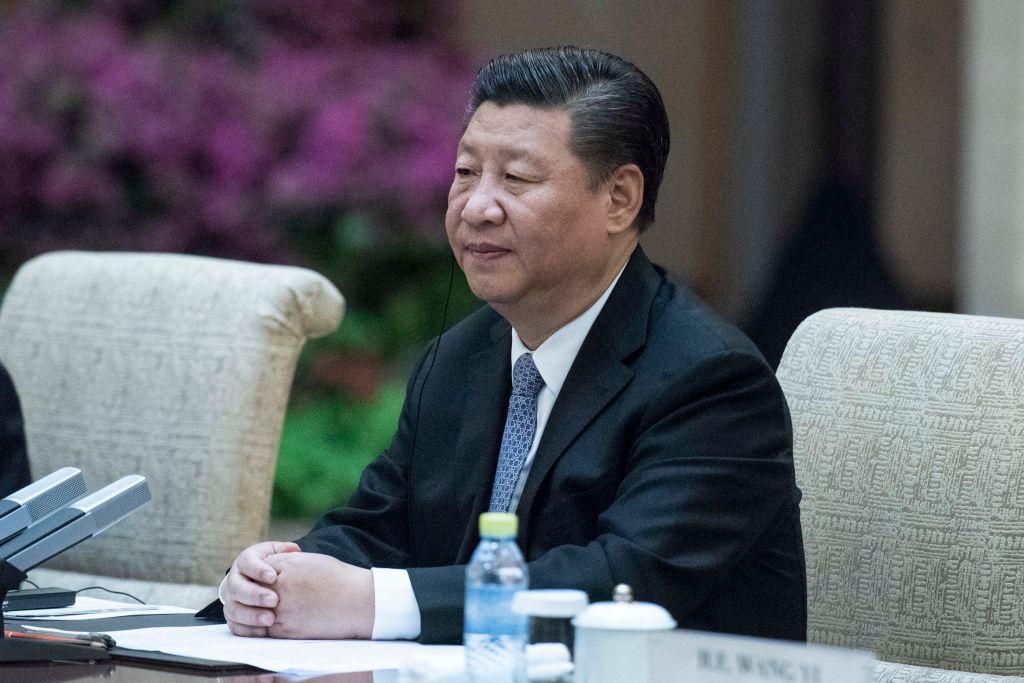Officials from the Central Committee of the Chinese Communist Party (CCP) are likely to hold a major political meeting this month to set out the CCP’s direction, outline its economic policies, and discuss countermeasures related to the ongoing Sino-U.S. trade war, according to South Korea’s Yonhap News Agency, which cites an unidentified source.
If the meeting were to take place, as Yonhap suggests in an Oct. 15 article, it would be the first time since 1958 that Beijing would hold three plenary sessions in a given year.
The meeting, which would officially be called the Fourth Plenary Session of the 19th Central Committee of the CCP, may be convened sometime before Oct. 25—which is the scheduled arrival date in China of Japanese Prime Minister Shinzo Abe. He is scheduled to stay until Oct. 27.
The meeting is for a group of Party elite that currently consists of 205 members and 171 alternate members. Generally, seven plenary sessions are held during the five-year tenure of Central Committee members.
Usually, each plenary session has an agenda for officials to discuss, according to China’s state-run media Xinhua. For example, officials tend to focus on economic issues at the Third Plenary Session, “Party building” at the Fourth, and economic development plans at the Fifth.
The full schedule for a plenary meeting is usually announced a month or two in advance, after the decision is made by the Politburo and other senior leadership, the person told Yonhap. Meanwhile, as the top leader of the CCP, Xi Jinping also has the power to call a plenary session at any time.
Economic Woes
The unusual timing of the meeting may be a sign that the Chinese regime urgently needs to deal with its economic problems, a consequence of the trade war with the United States, according to Hong Kong newspaper Apple Daily.
Currently, the Trump administration has levied tariffs of 10 percent and 25 percent on a total of $250 billion of Chinese goods. While China has imposed retaliatory tariffs against U.S. products, it is expected that the Chinese economy will be more negatively affected than the U.S.’s, according to a recent economic forecast by the International Monetary Fund (IMF), with China’s 2019 GDP taking a dip of more than 1.6 percent, compared to 0.9 percent for the United States.
China’s third-quarter GDP for 2018 also is likely to register reduced growth. According to analysis from a Reuters poll of 68 economists, China’s GDP grew 6.6 percent in the July-September period from a year earlier, which is a drop of 0.1 percent from the previous quarter. That’s also the weakest growth rate registered since the first quarter of 2009.
China’s stock market isn’t performing well, either. As of Oct. 8, the Shanghai Composite and the blue-chip CSI 300 index dropped about 18 percent since the beginning of the year, according to Reuters. To prop up the economy, China’s central bank, the People’s Bank of China, announced a 100-basis-point cut to banks’ reserve requirement ratios on Oct. 7.
Aside from its economic woes, Beijing is also facing the reality of the United States stepping up its military presence in the Asian region—another reason for the Chinese regime to urgently call a Fourth Plenary Session, according to Apple Daily.
On Sept. 27, U.S. military flew B-52 bombers near the South China Sea, an area that Beijing has heavily militarized in recent years in an effort to bolster its territorial claims. And on Oct. 12, the U.S. Department of Energy announced it would tighten monitoring over China’s imports of U.S. civil nuclear technology, to prevent their use for Chinese military or other unauthorized uses.
Apple Daily’s analysis concluded that the goal of the Fourth Plenary Session would be for Beijing to “consolidate unity within the Party, boost national confidence, and determine its long-term strategy.”





